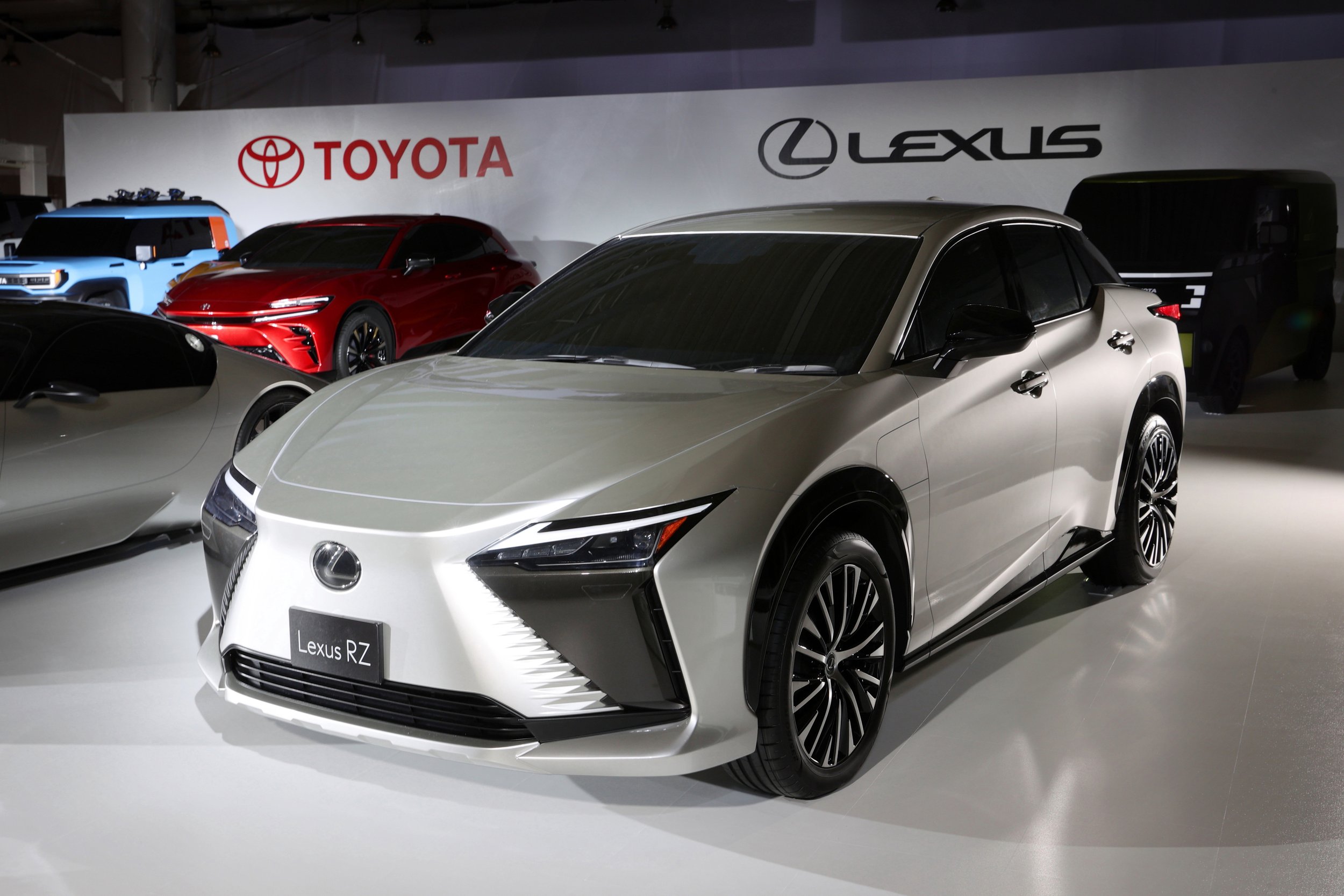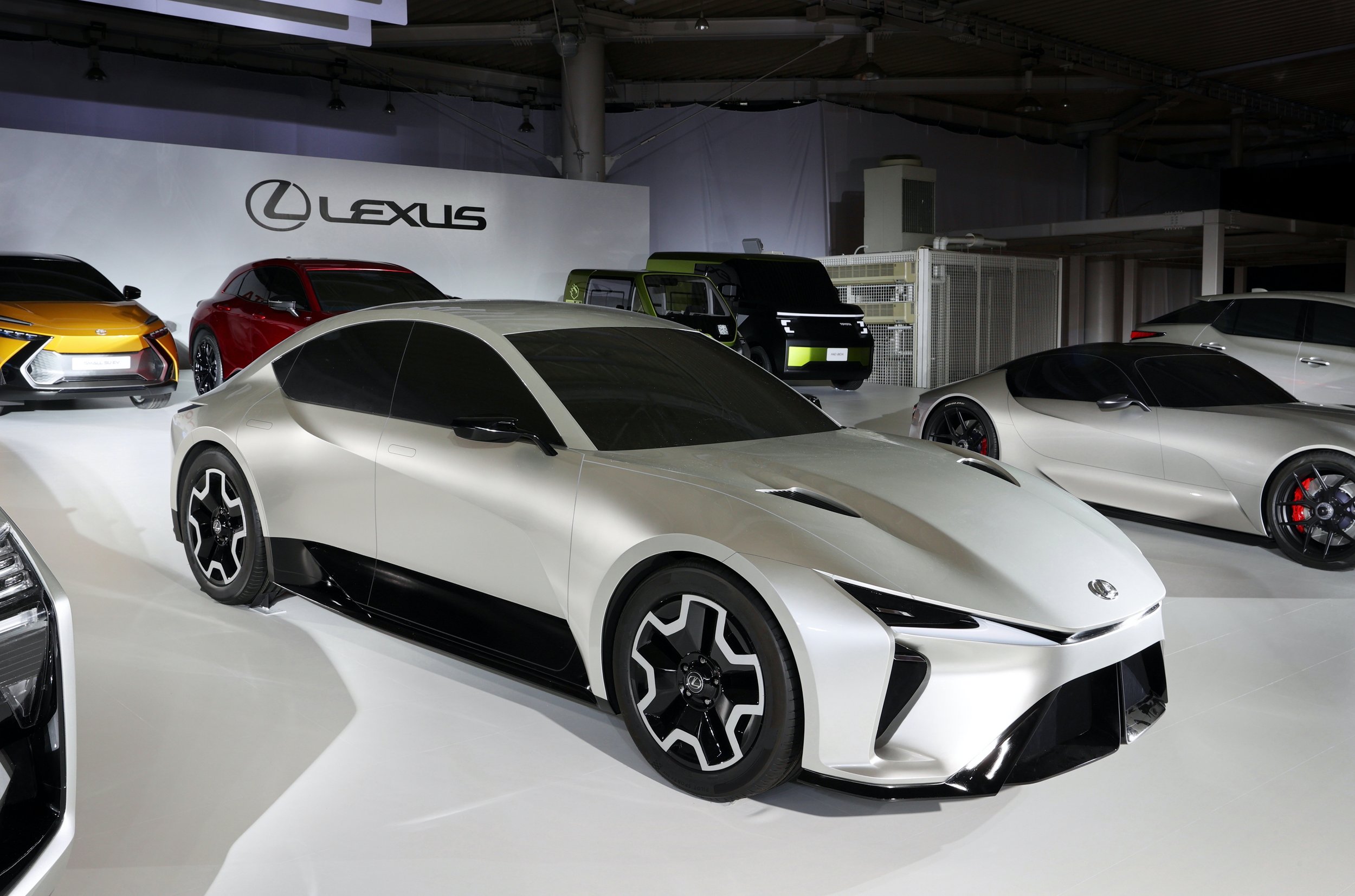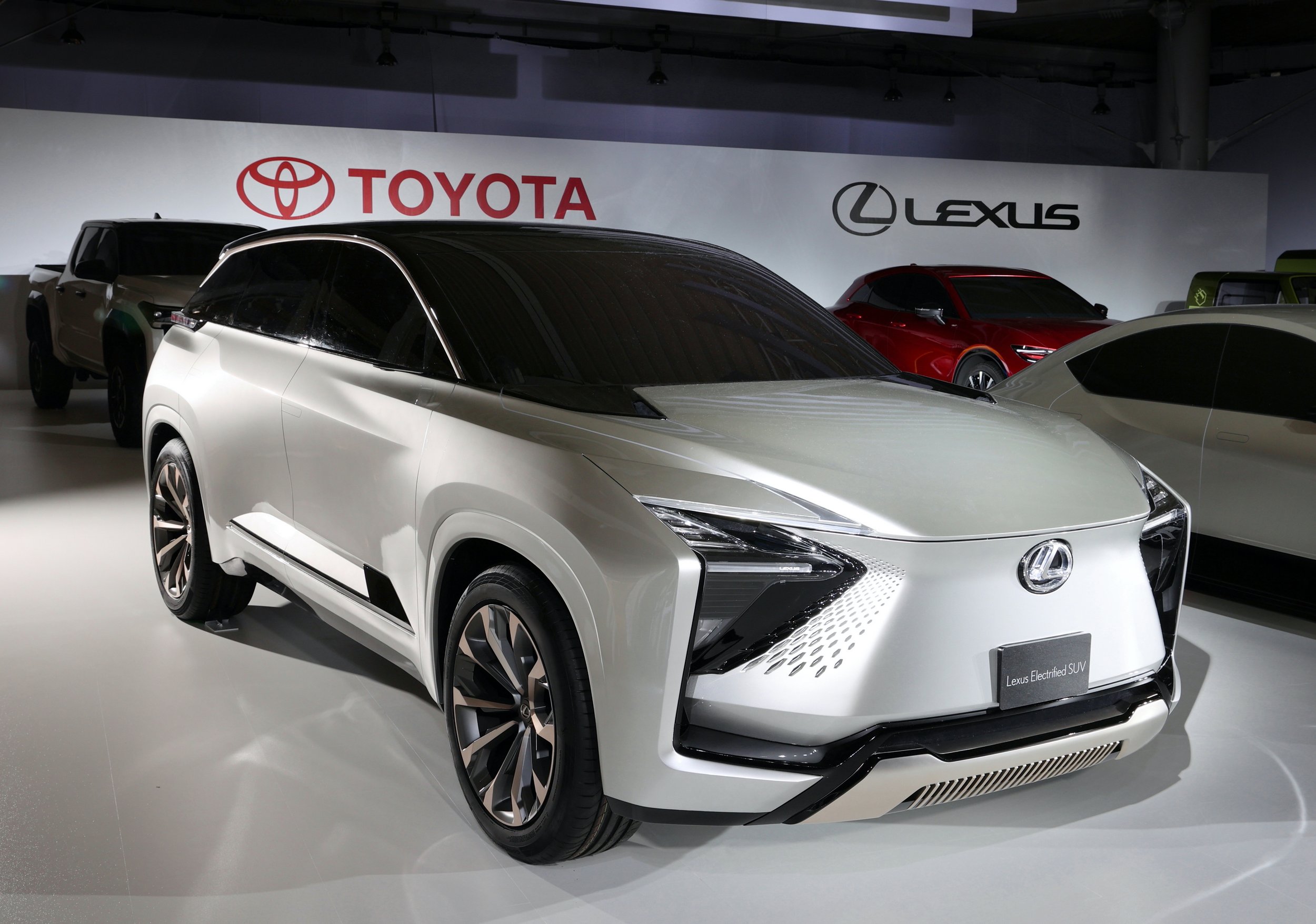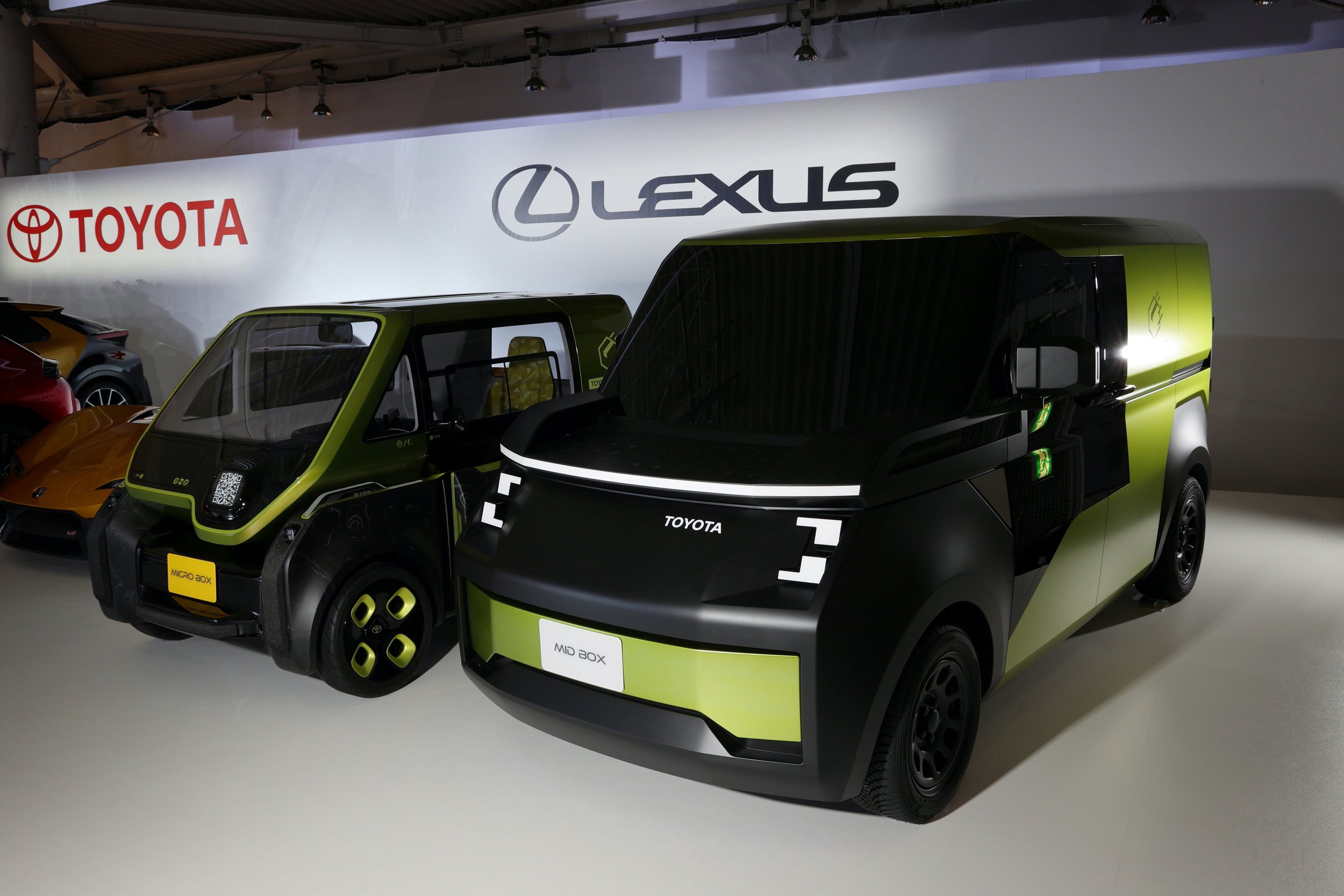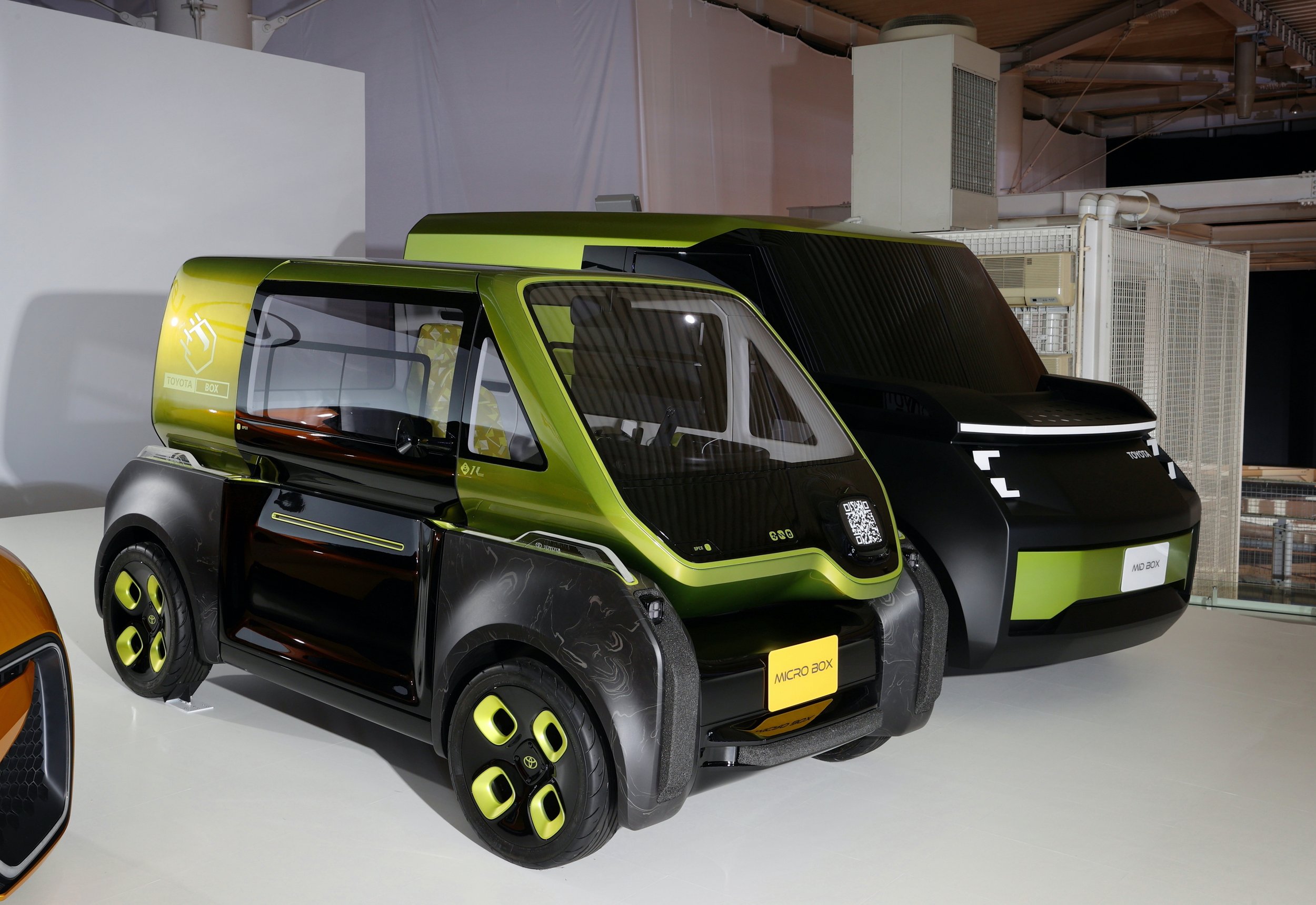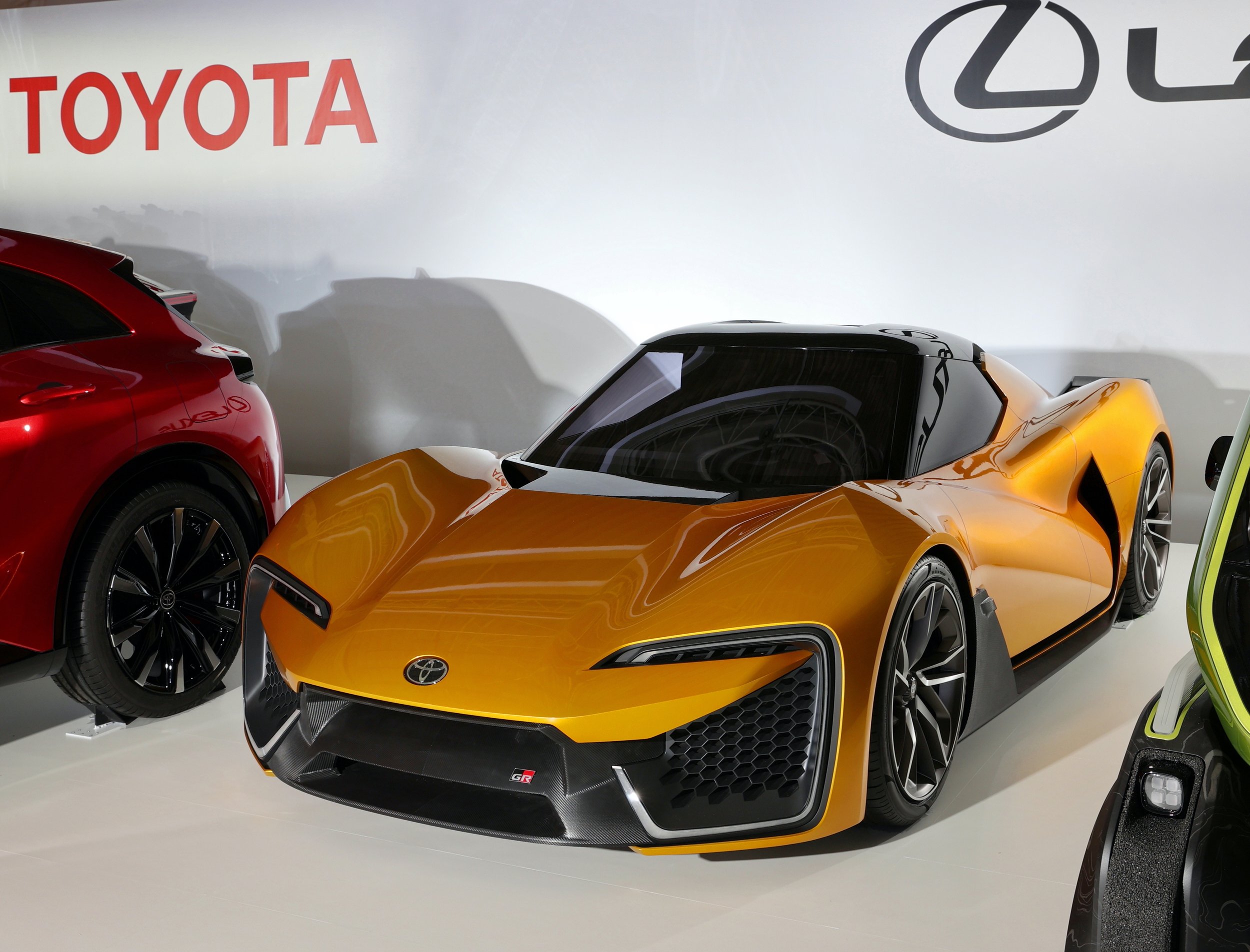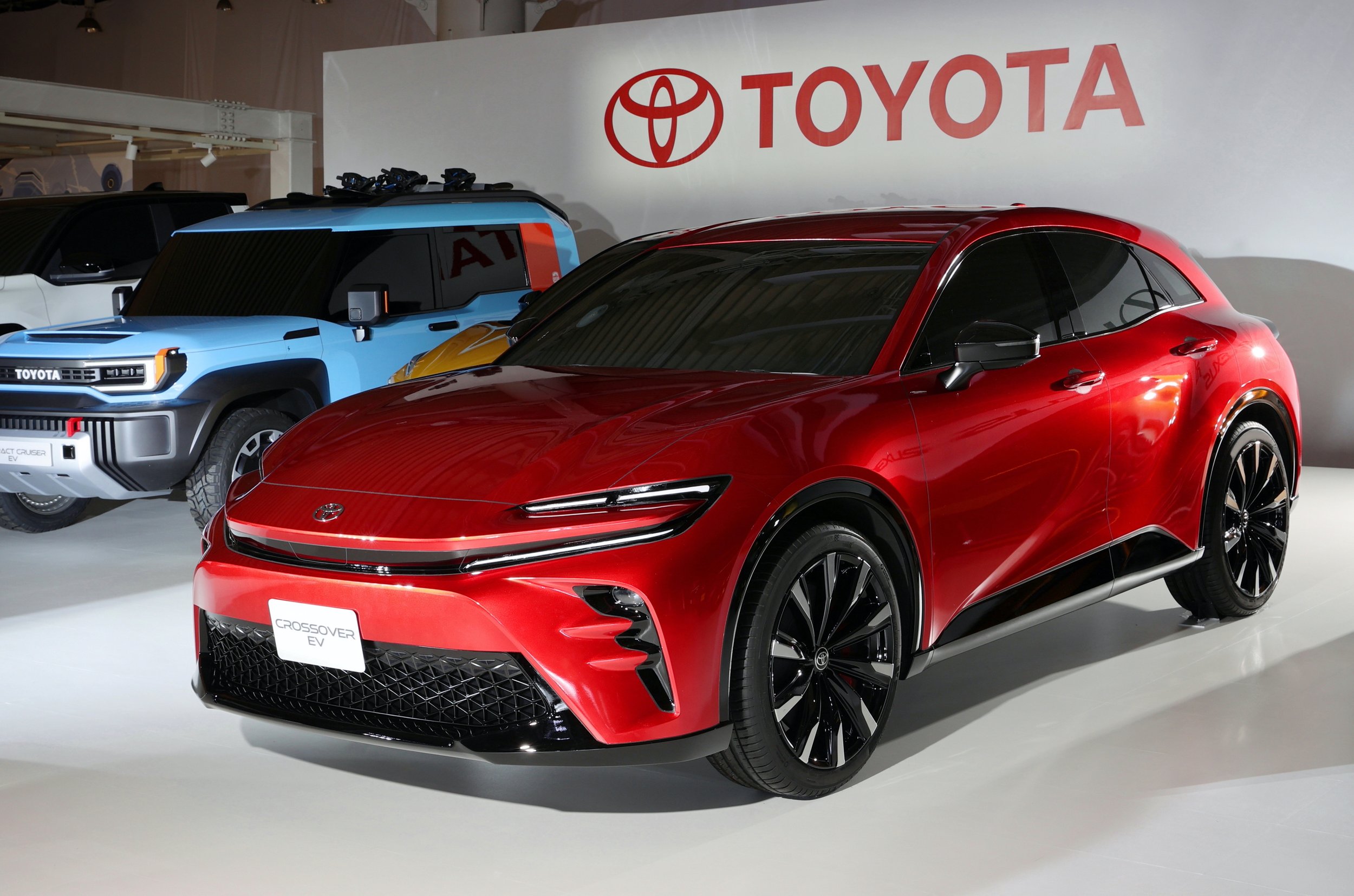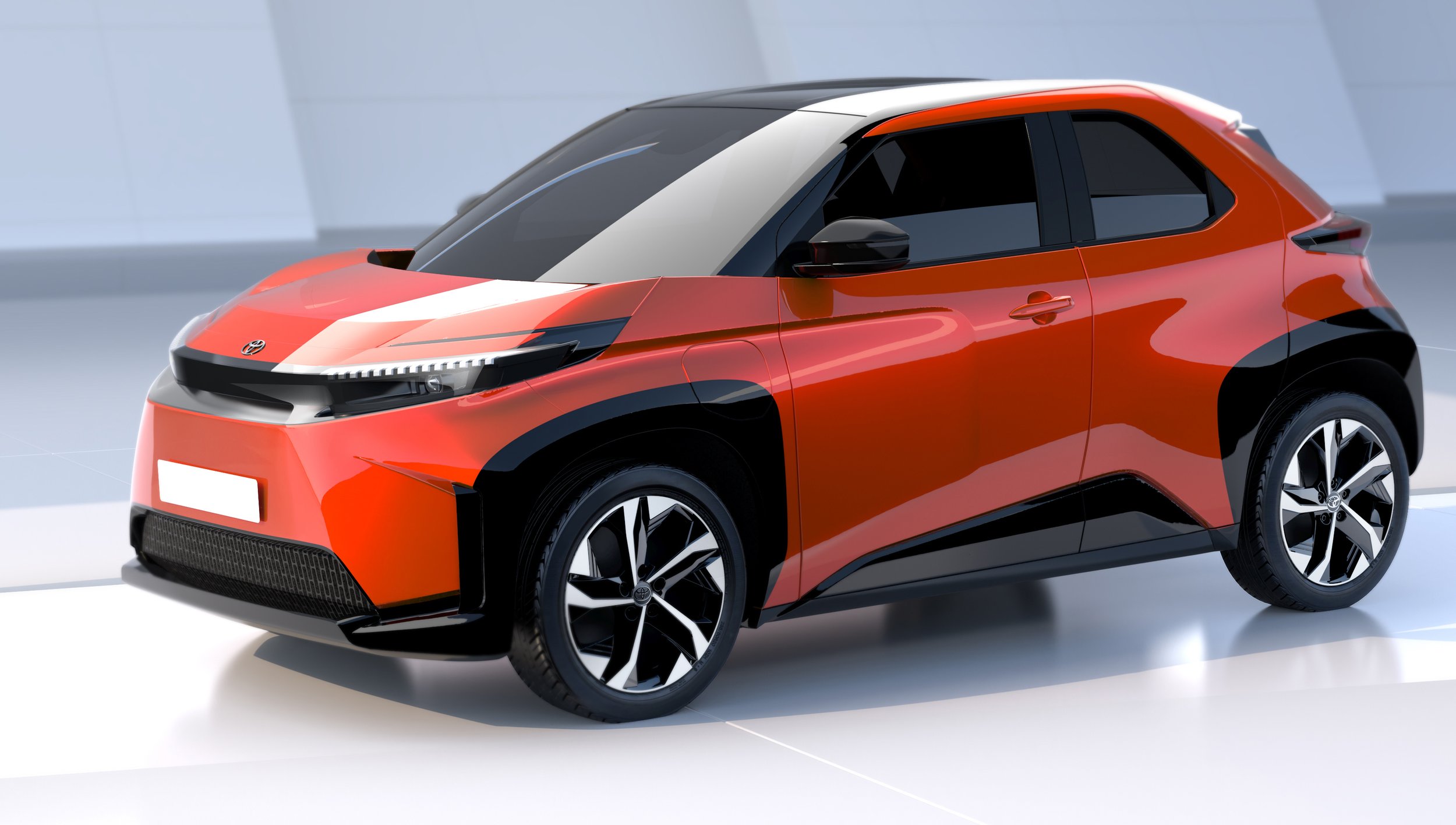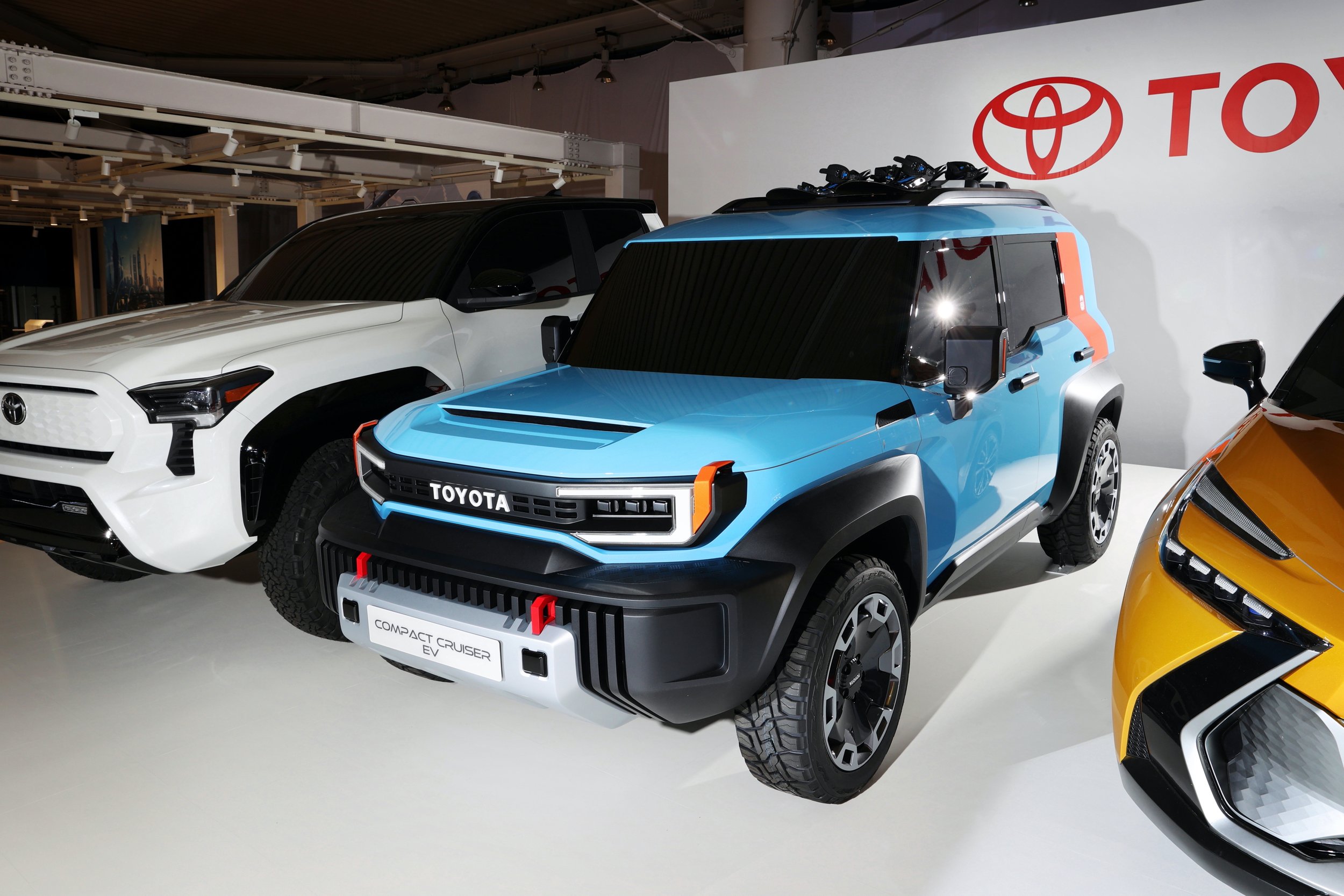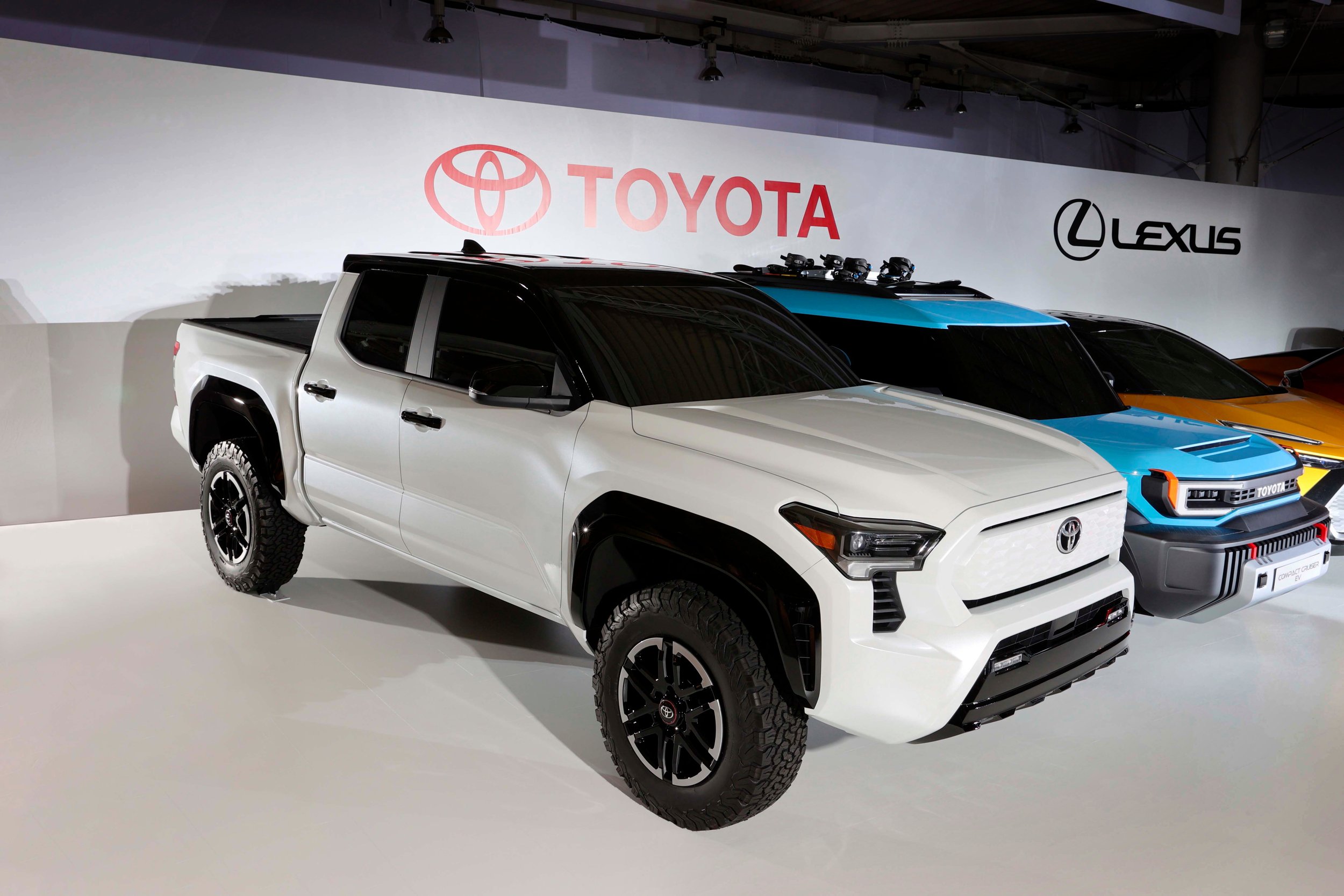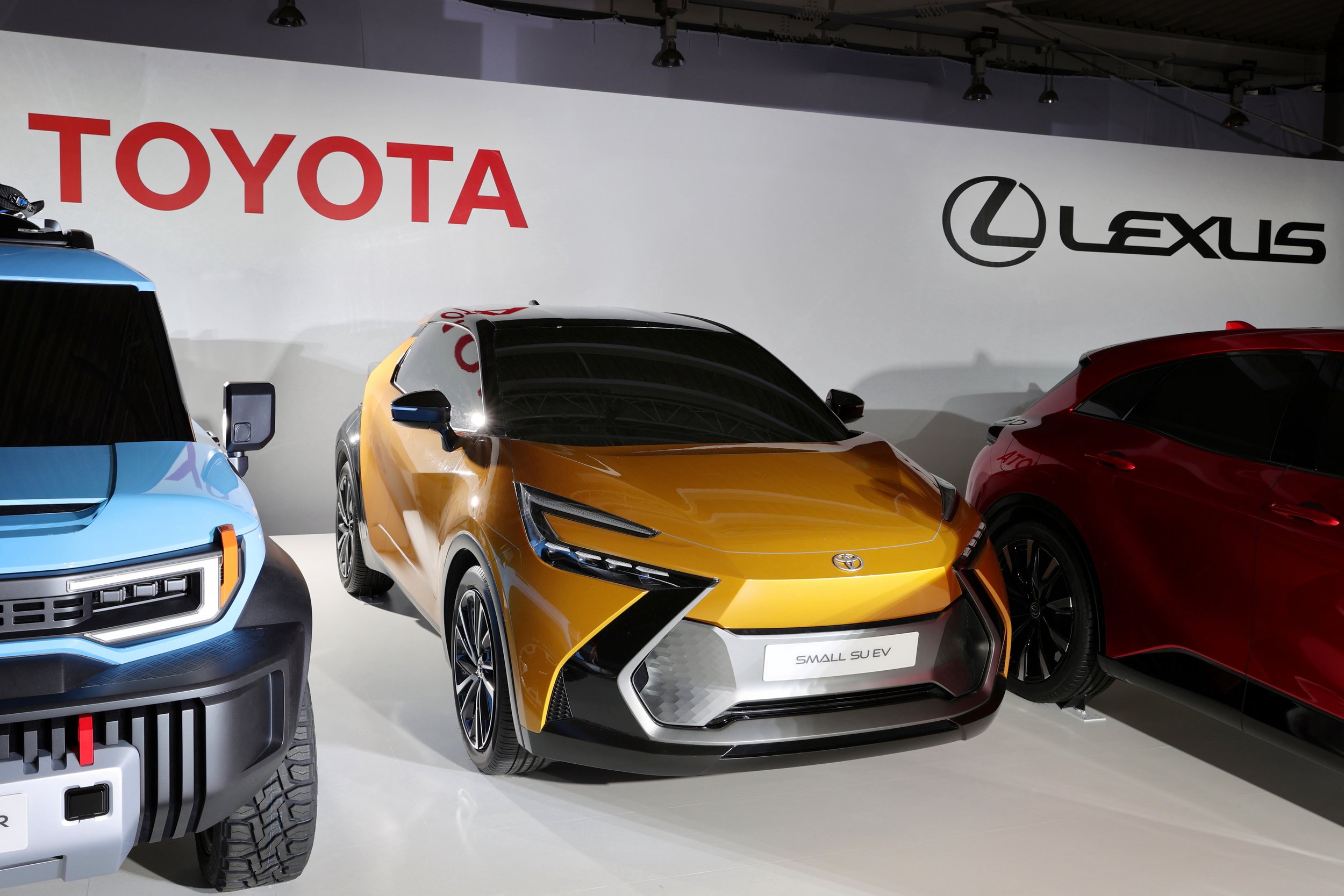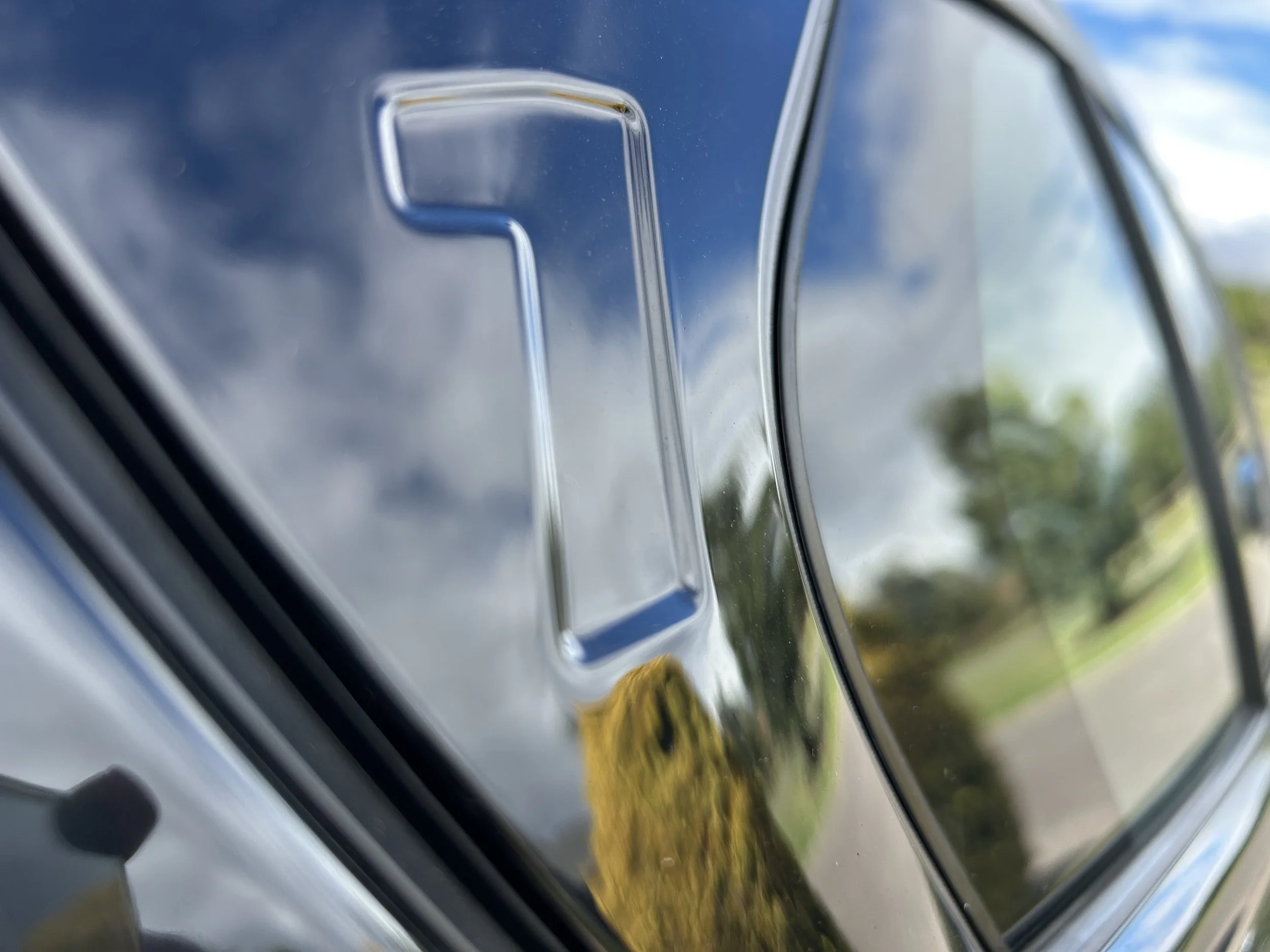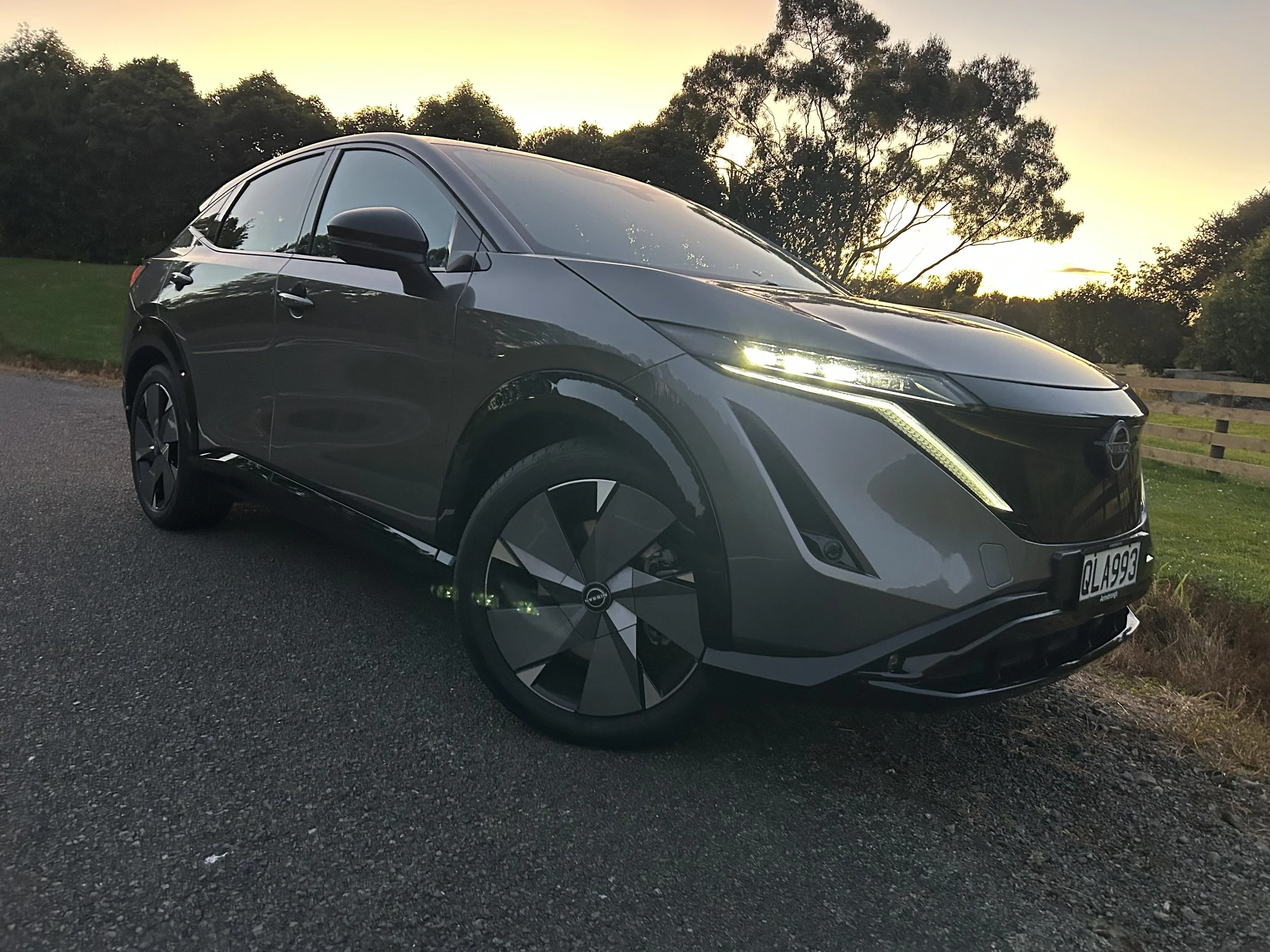Zapped: Full line of Toyota electrics unveiled
/The world’s biggest car maker has revealed a load of new electric models, spanning its two brands.
Akio Toyoda with the vehicles that will roll out by the end of the decade.
AN unveiling in Japan tonight of 15 previously unseen battery-dedicated cars and announcement of a huge investment in the technology is surely set to silence those who cite Toyota as a laggard in the electric vehicle sector.
In addition to revealing advanced design studies suggested as candidates for on-road reality for Toyota and Lexus product – ticking off everything from small city cars to two two seater sports cars (the larger an apparent successor to the Lexus LFA, the other potentially the first bespoke EV from its Gazoo Racing performance brand), plus several sports utilities and commercials including what appears to be a one-tonne utility that could surely stand as a future Hilux - Toyota Motor Corporation has announced investments totalling 8.0 trillion yen (almost $100 billion New Zealand) in carbon-reducing and carbon-neutral vehicles and technologies between now and 2030.
The vehicles shown today comprised five Toyota ‘bZ’ (beyond Zero) vehicles, seven ‘lifestyle’ models including commercial vehicles, and four models for Lexus, which is set to shift from hybrid to purely electric power globally by 2035. The premium marque’s flagship appears to be a successor to the V10-engined LFA.
is this the electric Hilux of the future?
BZ compact SUV
They are among 30 new BEVs TMC plans to roll out by 2030, resulting in a comprehensive line-up of electric passenger-cars, SUVs and commercial vehicles needed to meet Toyota’s aim to sell 3.5 million electric vehicles a year globally in 2030 — part of its plan to build momentum in its push for carbon neutrality.
An event at Toyota's Megaweb showcase in Tokyo broadcast internationally made clear Toyota will deliver a vast range of fully-electric vehicles alongside its hybrid, petrol, and diesel offerings.
Toyota says it believes electrified vehicles can be divided into two categories: carbon reducing vehicles (such as hybrids), and pure electric cars.
TMC President Akio Toyoda announced the group's new BEV sales target, which is an increase of 75 percent on the previous annual sales projection of two million BEVs, issued in May this year.
Half of the investment funds will be devoted to research and development and capital expenditure for BEVs, while the other half will be dedicated to hybrid-electric (HEV), plug-in hybrid-electric (PHEV) and fuel-cell electric vehicles (FCEV).
BZ large SUV
Lexus electrified sport
The total includes 2.0 trillion yen (almost $25 billion NZ) to accelerate the development of more-advanced, high-quality, and affordable batteries, an amount that is one-third higher than the 1.5 trillion yen announced as recently as September.
Toyoda said Toyota has more than 30 years of experience in power efficiency - refining the control of batteries, electric motors and the amount of energy a vehicle needs to run.
"We will not only add battery EV options to existing vehicle models but will also offer a full line-up of reasonably priced mass-production models, such as the bZ series, to meet the needs of all kinds of customers," he said.
"We can position batteries and electric motors to bring more freedom to battery EVs. This freedom will allow us to be more attuned to our customers, such as by meeting the various needs of different regions, the various lifestyles of our customers, and, when it comes to commercial vehicles, everything from long-distance transport to last-mile delivery."
Energy plays a critical role in achieving carbon neutrality and, at this stage, the energy situation varies greatly from region to region.
"That is exactly why Toyota is committed to providing a diversified range of carbon-neutral options to meet whatever might be the needs and situations in every country and region. It is not us but local markets and our customers who decide which options to choose."
In November, Toyota declined to join a pledge signed by six major carmakers, including General Motors, and Ford, to phase out fossil fuel cars by 2040. It argued that not all parts of the world would be ready to transition to green cars by then.
In addition to battery EVs, Toyota also builds hydrogen fuel cell cars, and is developing internal combustion engines that run on hydrogen fuel, although it has not said when it might commercialise the technology.
